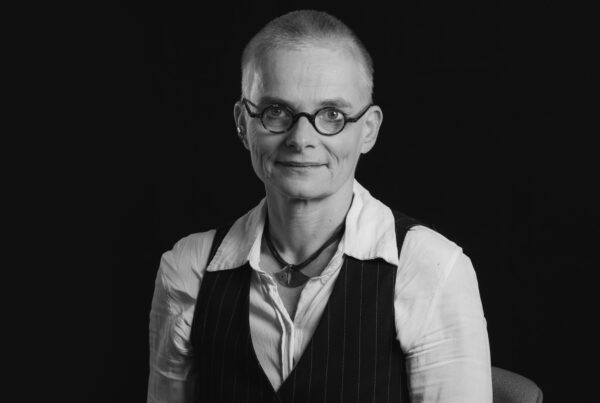In my graduate education at the University of Vienna, I was trained in theoretical linguistics with an emphasis on syntactic theory as well as interface-issues (syntax-morphology, syntax-semantics, and syntax-pragmatics). My primary language focus was on Germanic. After completing my graduate work I joined the department of linguistics at the University of British Columbia first as a postdoctoral researcher (1996-2001) and later as a faculty member (2001-2019). During this time I expanded my language specialization to include Upriver Halkomelem (Salish), Blackfoot (Algonquian) and Ktunaxa (aka Kutenai). Thus, I became a field-worker. I have published extensively on typological issues viewed from the angle of theoretical linguistics. During this time I also founded the "eh-lab", a research group exploring the language of interaction. My relocation to ICREA and UPF in 2019 marks a turn towards a more cognitively-oriented research agenda.
Research interests
My research explores the fundamental building blocks of human language, how languages differ in their realization, as well as how these building blocks relate to more general cognitive capacities. My empirical emphasis over the past 10 years has been the language found exclusively in interaction: i.e., aspects of language that serve to regulate the construction of common ground among interlocutors on the one hand and the dialogical interaction itself (e.g., turn-taking). I explore how interactional language compares with propositional language (i.e., the language of reference which allows for the construction of thought). My research clearly reveals that interactional language is as much part of our human-specific capacity for language as propositional language is. This opens up new avenues of research, which I currently explore, including the linguistics behind Human Machine Interaction, the acquisition of interactional language, and the language of self-talk.
Selected publications
– Wiltschko M 2024, “Emotions do not enter grammar because they are constructed (by grammar)“, Language Under Discussion, 7-1-1–62.
– Wiltschko M 2024, ‘The syntax of talking heads‘. Journal of Pragmatics. 232: 182-192.
– Hinzen W, Martin T & Wiltschko M 2024, ‘A new argument for linguistic determinants of human thought‘, Linguistics and philosophy, 47 – 1027 – 1043.
– Wiltschko M 2024, ‘Is grammar affected in Schizophrenia?‘, Psychiatry research, 339 -116061.
Selected research activities
4 keynote talks
- Self-talk as a window into the syntax-pragmatics interface. The Western Conference on Linguistics (WECOL), California State University, Fresno
- Emotions don´t enter grammar because they are constructed (by grammar) Plenary talk, Tabu Dag, Groningen University,
- The syntax of knowing and beyond. Deutsche Gesellschaft für Sprachwissenschaft (DGfS) Ruhr Universität Bochum
- You can enter syntax and save your face in different ways. Charting Honorific and Addressee morphosyntactic processes (CHAMP 2, Goettingen, Germany).
I finished my INTERACT project on the linguistics behind Human Machine interaction, with several talks at international venues in the Czech Republic, Sweden, and Korea, as well as some papers still in the pipelines. We explored the use of huh with virtual assistants, as well as the linguistics behind AI hallucinations, which is the topic of course I was teaching for the first time at the Barcelona International Summer school.
